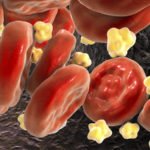The Case Against Vitamin E
The opening paragraphs paragraphs in the following CBS news release are typical of the sensationalized content in stories by NBC, ABC, CNN, APP, Reuters, and a host of international newspapers.
Vitamin E hasn’t proven to be good for the heart, and now a study suggests that too much vitamin E — daily doses of 400 IU or more — actually increases the risk of dying, according to new findings.
Johns Hopkins University researcher Edgar R. Miller III, MD, PhD, an associate professor of medicine, tells WebMD that when he combined 19 vitamin E studies that looked at almost 136,000 patients, “it was clear that as the vitamin E dose increased, so does all-cause mortality.”
He says the risk of death starts to increase at 150 IU, but at 400 IU, which is the typical dose available in vitamin E capsules, the risk of dying from any cause is about 10 percent higher than for people not taking the vitamin. At megadoses, such as 2,000 IU of vitamin E, the risk increased more than 20 percent.
“Based on our findings, high-dose vitamin E supplementation is unjustified,” he says.
Some, but not all of the stories, made mention of the fact that some authorities disagreed with the findings, but did not pursue that side of the story in detail.
Only the Facts Get in the Way
So what’s wrong with the findings?
- This was not a new study, but an analysis of data from pre-existing studies — many of which were conducted outside of the United States, including China. Is there a problem with this? Not necessarily. But it’s certainly more than a bit hypocritical to use foreign studies to “prove” that an alternative health supplement is bad for you, but refuse to accept any foreign studies that prove they might be good for you (the 30,000+ studies that prove the value of echinacea, for example, are not accepted in the United States).
- Most of the people involved in the studies were elderly and/or heavy smokers and/or afflicted with catastrophic illness such as heart disease, Alzheimer’s, and Parkinson’s.
- There was no distinction made in form of Vitamin E used by participants. That is, was it the synthetic dl-alpha, or naturally derived d-alpha? Considering that synthetic alpha tocopherol is already proven to be at best, 30% as effective as the natural form– and in some studies actually harmful, this is not an unimportant distinction.
Surprise. Surprise. We saw this same issue raise its head in the study a couple of years ago that “proved” that beta carotene was harmful to your health. In that study, there was no mention of the fact that participants in that study used synthetic beta carotene derived from acetylene gas, not naturally derived beta carotene — let alone a full carotenoid complex.
A Note on Vitamin E
And of course, it’s probably worth mentioning (and this concept falls totally outside of the study), neither dl-alpha tocopherol nor d-alpha tocopherol are actually vitamin E. Vitamin E , as are most vitamins, is a naturally occurring complex that never exists in isolation in nature. (Why is this concept so difficult for medical researchers to understand?) Vitamin E consists of at least 4 tocopherols (alpha, beta, gamma, and delta) and 4 tocotrienols (alpha, beta, gamma, and delta).
So how did vitamin E come to be defined as just one of its eight components. Quite simply, a number of years ago, researchers looking at the E complex saw that alpha tocopherol was the predominant component of the complex so they decided, “It must be the most important. So we’ll call that one piece Vitamin E and ignore the other components.” (A fascinating logic when you think about it.)
Well, over the last few years, researchers have come to understand that alpha tocopherol is not only not the most important, it is, at best, number five in the pecking order– trailing all of the tocotrienols and gamma tocopherol in importance.
So the question of the day is, “If researchers actually know that vitamin E consists of a minimum of eight components, with alpha tocopherol not even cracking the top half in importance, why is this current study basing its conclusions on supplementation with this marginally beneficial isolated component — and a synthetic version at that?”
And the problem is that no matter what answer you come up with (ignorance, stubbornness, or malice), it’s not good.
Bottom line: Full Complex E
If you supplement with vitamin E, you probably have nothing to worry about. But make sure you are at least using d-alpha tocopherol — and ideally, a full complex E.










